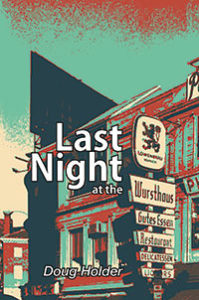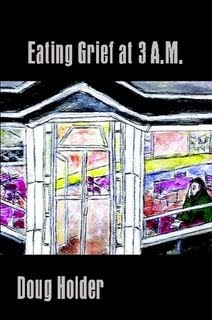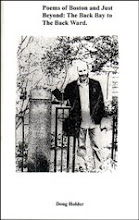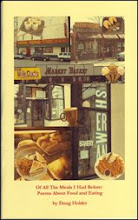Review
ARTS EMERSON
Sleeping Beauty
Carlo Colla & Sons Marionette Company
Milan, Italy
The Paramount Theatre
559 Washington Street
Boston, MA
November 13-17
Tickets: 617-824-8400
ARTSEMERSON.ORG (for trailer go to this website)
Reviewer: Amy R. Tighe
Sometimes, I doubt myself. Sometimes what I can cherish and what I long for commingle and I end up holding on to something I cannot ever attain. In those moments, I am misplaced. It happens more now as I slow down, slightly giving in to my aging, in a time where my globe is speedier and its own acceleration is speeding up as well.
So I wasn’t sure I should see puppets. Gasland is playing at several local churches, carbon pricing talk at Babson next week, mass incarceration discussion on meet-up.
And besides, I know how the story ends. And being single and vulnerable, I sometimes over -identify with characters and well, I could just see myself justifying curling up for another 100 years while I wait for my next date!
But I went. A deal’s a deal, and I went. And so should you.
Sleeping Beauty is performed by 10 humans using hand-made marionettes, and their team of actors who deftly serve to awaken our connective dream. The Carlo Colla & Sons Marionette Company, from Milan, Italy, is an inter-generational company that was formed in the 1830s. An aristocratic family, who fell on hard times due to political and civil unrest, founded three separate puppet troupes and toured successfully throughout Europe for generations. The troupe playing at the Paramount is the last of the line and is one of the preeminent puppeteer companies in the world.
According to a note from Colla Marionette, puppet theatre was meant for adults, and not children, because the plays could provide insight and expression through make believe characters as a safe way to challenge existing leadership. And fairy tales are a land “inside each of us where time and space no longer exist, where good and evil are clearly defined not fluctuating and indiscernible as they are in reality.”
But here’s the thing—in reality, there are puppets! And fairy tales! It’s not the other way around—in fairy tales, is there reality? No. What is real is that on a chilly Boston November eve, in the changing heart of a strong city, with concrete construction everywhere, an open portal to human magnificence thrives through this marionetted performance of Sleeping Beauty. Go see it.
The set is a luscious stage within an opulent stage, set on the usual splendiferous stage of the Paramount. Whew! When the smaller curtain opens, because the larger one is already open, an Italian palace from the middle ages is revealed. Marble pillars, tiled floors, and an extensive banquet table, tapestries and blue skies invite us in. The marionettes enter as actors and I resist the temptation to be picky —their feet don’t touch, do their mouths open? And why are they using their hands so much? Oh wait, they are using their hands? Did that puppet just smile at me? And subtly I have somehow completely come into this story.
The pacing and the detail are haunting. Every detail of the costumes, characters, props and set has been scrutinized. I guess when you create a miniature world you have the capacity to see every detail and to craft every moment. Unlike my world, I cannot control the details. But here, the seven sets of cutlery encrusted with rubies for the christening are completely identical, the seven visiting Fairies all have distinct features and perfect outfits which you can identify as they fly across the sky in winged chariots (how do they get the wings on so many horses?) to arrive in the exact same costumes, only larger, in the exact same palace you saw when you toured Italy years ago.
Detail and craft. When the deep green anaconda (I think it is an anaconda and I am not telling you when it comes!) tries to eat the Prince, and is killed, his eyes close in death. How does a puppet close its eyes? When the Fairy Harmony takes her place to guard the sleeping kingdom, one of her sylphs cozies up next to her, like a kid watching TV and twitches his feet…. Like kids everywhere do…
I feel enveloped in the craft. And mysterious, to me, is that a profound slow pace I’ve been exposed to all night long has infiltrated my body, bones and mind. During set changes, and underscoring certain scenes, Tchaikovsky plays. There is time to reflect, to wonder and to remember –“wait- that is a puppet—he couldn’t have smiled at me! How’d they do that?” I have become completely relaxed, joined into generations of fairy tale listeners and puppet watchers—this is what humans have always done, can always do and my cells know it. And now, I am knowing it too.
There are a few kids splattered in the audience and because we have been invited to cheer and groan as an audience, they do. So their reactions become a part of the play as well and we chuckle at their cries.
I ask Rosie who is 9 but looks eleven “because I am tall” what she thinks and she says she loves theatre because she doesn’t have to fight over the remote like at home. I wonder if she wonders about the strings we see, the billows of smoke that announce the Fairy Misery, the impeccable timing of Puff the Dog’s tail. I wonder if she wonders about seeing a whole world, from the perspective of our fractured world, and seeing the craft we all can have. Seeing what we can attain and what we cannot. Knowing that what we cherish we might lose because we cannot craft the righted scale of our human life.
I wonder if tonight she knows she entered a story about storytelling and is being shown how to create our world. Puppets have historically been used to comment on our lives. Tonight, they grace us with a trip to our possible future because of hands from the past who saved them for us them, so generously.



































